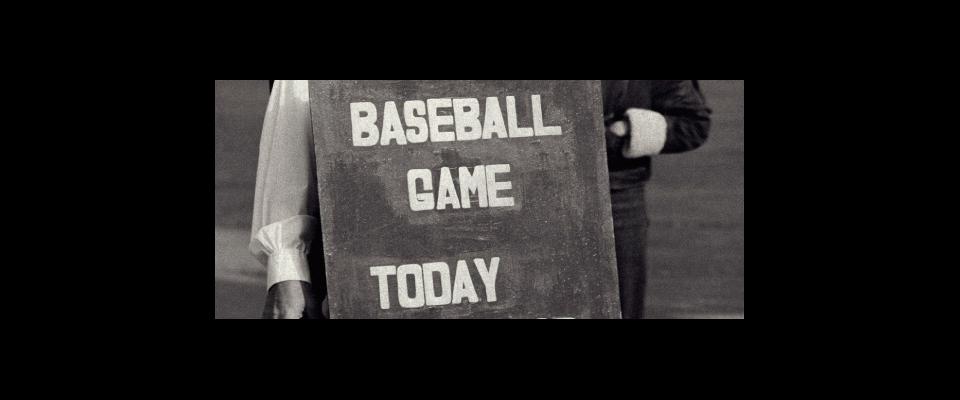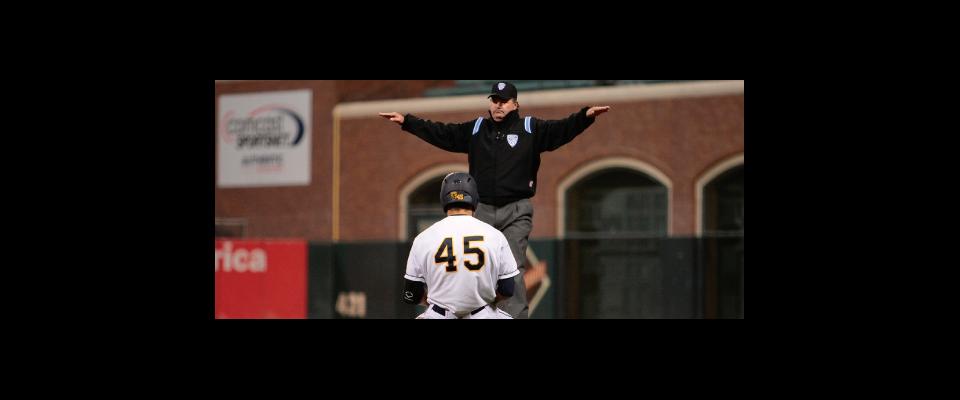California magazine: You and I first talked before the 2008 Olympics. You had just graduated, I remember, and even then we discussed the tenuous future of collegiate men’s gymnastics.
Tim McNeill: It’s always an issue, just based on how few teams are left.
CM: When you started in the sport, how many teams were there?
TM: I don’t know. I remember as a kid just assuming that every school that had a football team also had a gymnastics team, and I assumed I would go somewhere in Virginia near my house, and then in high school I found out that that wasn’t the case.
When I was deciding where to go to college it was about the same as it is now. A couple of the lower-tier programs have been dropped since then, but none of the major players that could contend for NCAA championships; that is, until this announcement was made. I think this is the biggest hit collegiate men’s gymnastics has taken in a long time.
CM: When talk first started of potential cuts, you guys were the first ones to take it seriously. Did you have much success in terms of rallying support?
TM: Yeah, when the possibility of eliminating programs was first mentioned, the men’s gymnastics team, our alumni, and Barry Weiner, the coach at the time, all felt that we had to react to this and be ready. And we got organized. We have a great alumni group, which I’ve now joined, and they started a committee called Cal Gymnastics Forever. They got a couple hundred thousand dollars in pledges and that was before an announcement was even made. And so, from the beginning, everyone has been motivated to do whatever they can to keep men’s gymnastics alive at Cal. And that motivation is still there.
CM: So in this campaign, you’re getting pledges, but I assume you’re not getting actual funds? Is that correct?
TM: Yeah, and just to be clear, we stopped collecting pledges when the announcement was made and haven’t started up again yet. From everything that Intercollegiate Athletics has told us, it’s a package deal and that the only way to bring any of the sports back is to bring them all back. And so we right now are trying to get organized with the other sports and make a joint committee with representatives from all the sports. Right now, it’s all just about getting organized and being ready to start the fundraising push.
CM: It’s going to take a lot, as I understand it.
TM: Yeah, twenty million dollars maybe. So it’s going to take a whole lot of effort and a whole lot of commitment from a lot of people and I think that the will is there and that we’re going to give it a really great effort. I think that if we’re unsuccessful it won’t be for lack of effort but because the story didn’t affect enough people.
CM: And if you’re unsuccessful, do you carry on as a club sport at Cal?
TM: I’m not sure what’s going to happen yet. The administration still has decisions to make. But we have people who are contenders for the Olympics training here, and a lot of them are going to want to finish their Cal degree and train at that gym. I hope the University gives those guys a chance and allows them to continue to do so.
CM: I would think that your athletes are in an especially tough spot, what with so few programs out there.
TM: Exactly. Berkeley is among the best academically of any of the gymnastics schools. Stanford is obviously a close option, but Stanford only accepts so many people. A lot of the guys, they don’t want to give up their Cal degree, so even though they love gymnastics and would love to continue it at a collegiate program, they don’t want to transfer—that’s how much this university means to them and how much they love it here.
CM: And now with Stanford the lone squad in the west, it’s going to be hard for them to hang on as well, I’d imagine.
TM: Absolutely. We compete against Stanford like eight times this year. We always go back and forth. Now they’re going to have to fly to all of their meets, which is going to be a lot harder on them.
But the bigger thing is our conference, the Mountain Pacific Sports Federation. If we go, that only leaves Stanford, Oklahoma, Air Force, and Nebraska. And Nebraska’s going to the Big 10 and Air Force is joining another conference on the East Coast with Army and Navy. So that’s two schools left in the MPSF. You can’t have a conference tournament with only Oklahoma and Stanford. It would be a dual meet.
CM: Are you surprised that college gymnastics isn’t more popular given how much attention it gets in the Olympics?
TM: Certainly, every four years when the Olympics come around the interest really boosts, but I think it gets forgotten about really easily. You know, gymnastics is almost never on TV and when it is on it’s at noon on Sunday. People lose interest.
But I think it’s really important for the US programs to continue to do well at the Olympics so that Americans know we have one of the best teams in the world. I think that would go a long way. I think right now if you ask 100 people how the US Men’s Gymnastics Team is, 99 would say they have no idea.
CM: How is the US Men’s Gymnastics Team?
TM: We were third at the last Olympics in 2008 and we were just fourth in the last World Championships, which was just a few weeks ago. I’d say we’re definitely a contender for gold medal in 2012. And a lot of the athletes that are going to be on that team are coming from collegiate programs. I think right now there are 17 members on the National Team and all but two came from college programs at some point. Three of the 17 are from Cal—myself, Glen Ishino, and Bryan del Castillo—and they’re getting rid of our program!
CM: Your season starts in January. Is it going to be hard to stay competitive with all this uncertainty?
TM: You know, no. I was worried that the motivation would fade away with this announcement, that it would just devastate us, but it hasn’t done that at all. If anything the guys are more fired up than ever and a lot of them realize this could be their last year of gymnastics. And I’ve tried to use that as fuel and say, ‘You have to do everything that you can this year, you’re not going to want to have any regrets.’ They’ve taken that to heart and have worked incredibly hard, and I think that we really could contend for the title this year and go out as team champions.




















